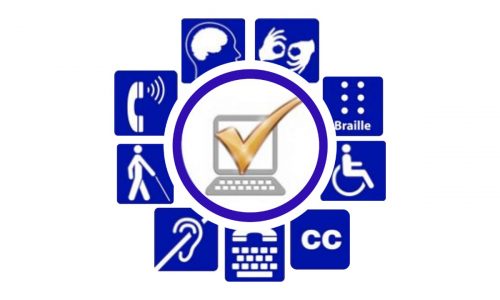Compliance Testing
Accessibility Compliance
We provide advice and offer end-to-end accessibility testing as per the country specific laid down policies, such as EN301549, Section 508, WCAG 2.0, WCAG 2.1 Guidelines and ADA standards and guidelines. Our Accessibility Lab is equipped with the requisite and latest Assistive Technologies supporting wide variety of devices across various operating environments
Our accessibility lab is equipped with the requisite, latest assistive technology supporting wide variety of devices across various operating environments and skilled manpower to undertake the compliance testing.

Accessibility compliance of a software ensures that the software is usable by people with disabilities such as hearing, blindness, senior citizens and divyangjan. Various countries have accessibility policies in place. Most of them are with the W3C Accessibility standards with certain regional / country specific requirements
The Department of Empowerment of Persons with Disabilities in the Ministry of Social Justice & Empowerment facilitates empowerment of the persons with disabilities, who as per Census 2011 are 2.68 crore and are 2.21 percent of the total population of the Country. These include persons with Visual, Hearing, Speech & Locomotive disability, Mental Retardation, Mental Illness, Multiple Disability and any other disabilities.
Department of Empowerment of Persons with Disabilities (DEPwD) has launched Accessible India Campaign (Sugamya Bharat Abhiyan) as a nation-wide Campaign for achieving universal accessibility for Persons with Disabilities (PwDs).
The Rights of Persons with Disabilities Act, 2016 is the disability legislation passed by the Indian Parliament to fulfil its obligation to the United Nations Convention on the Rights of Persons with Disabilities, which India ratified in 2007. The Act replaces the existing Persons with Disabilities Act, 1995. Rights of Persons with Disabilities (RPD) Act 2016 mandates ICT accessibility for both the public and private sector and places many mandatory obligations on the Government with respect to standards and technologies
It has the following three important components:
- Built Environment Accessibility
- Transportation System Accessibility
- Information and Communication Eco-System Accessibility
